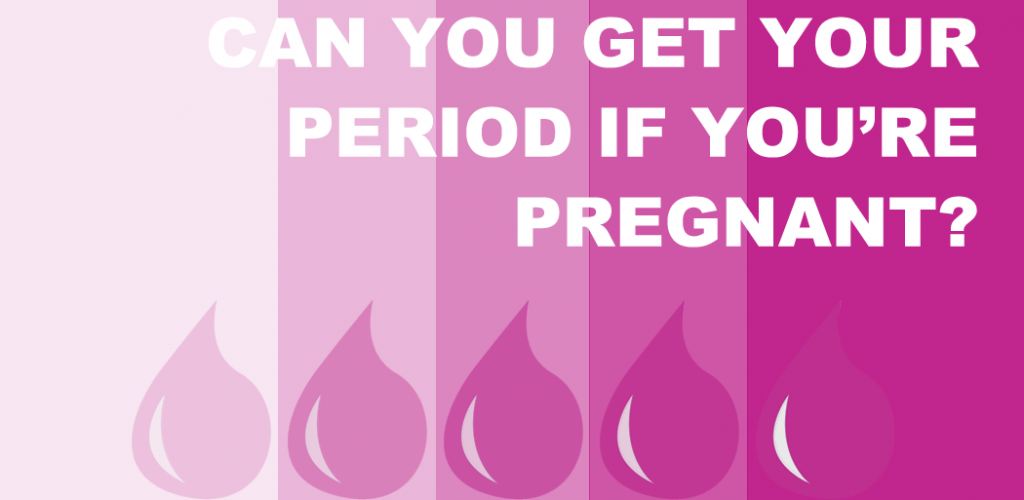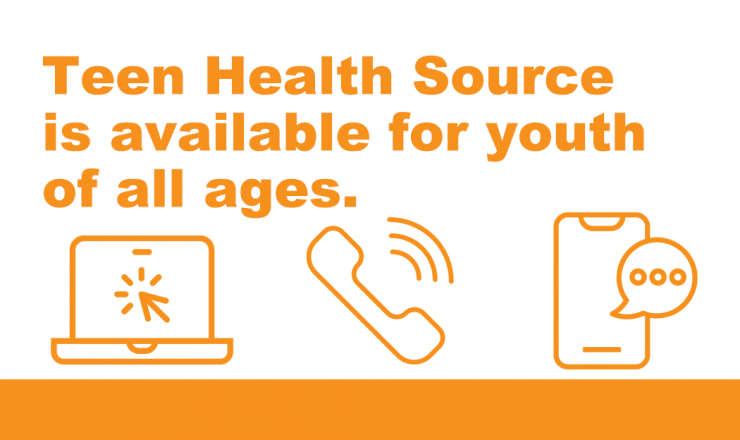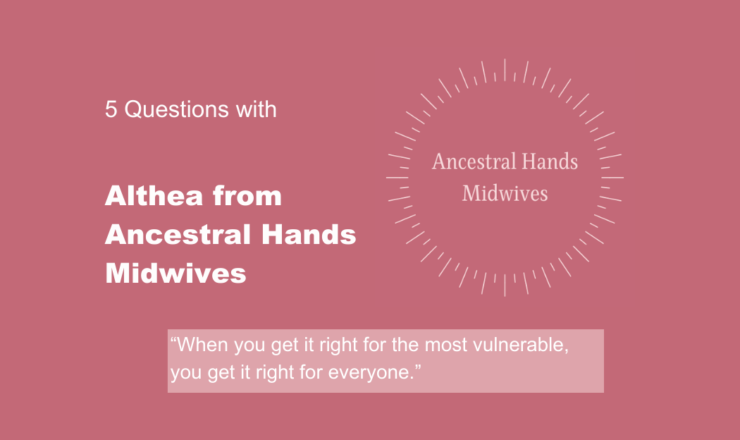

The short answer is no, you can’t get your period while you’re pregnant.
If an egg isn’t fertilized and doesn’t implant into the wall of the uterus, then the body is like “Well, we don’t need this uterine lining we’ve been building up all month,” and you have a period. All of the uterine lining is then shed from the body out of the vagina (that’s what period blood actually is). If a fertilized egg does implant into the uterus (aka pregnancy happens), then the body is like “Whoa, I need all this uterine lining to nourish the egg!” and you don’t have a period.
Bleeding can happen while a person is pregnant, it’s just not a period. Reasons for this could include:
Spotting, Implantation Bleeding and Ectopic Pregnancy are the three that we get asked about the most, so we’ve got more info on those below. It should be noted that Implantation Bleeding and Ectopic Pregnancy bleeding are generally uncommon.
It can also help to remember that using hormonal birth control or emergency contraceptive pills (like Plan B) can also cause bleeding different than what you’re used to. Hormones can change what bleeding is like during your period, and using something like Plan B can make your next period early or even up to 2 weeks late.
The only way to know for sure if you’re pregnant is to do a pregnancy test. It’s not possible to tell from missed or irregular periods alone. Pregnancy tests are accurate if taken 14 days after you had sex where there was a risk of pregnancy. And they’re very accurate! Please see one of our recent blog posts for more info:
Going off the scenario described above, there really isn’t a risk of pregnancy when someone’s on their period. Eggs can only be fertilized between 24-48 hours after ovulation. Ovulation typically happens 11-16 days before someone is expecting their period. When a period is happening, the egg and uterine lining aren’t usable and are getting flushed out. Even if sperm were introduced to the equation at this point, they wouldn’t be able to do anything (since sperm die within 5 days). Now if someone has a really short cycle, like under 25 days between periods, then there could be a potential risk of pregnancy from sperm leftover after sex during a period. For more info, please check out our post What is Risk: Pregnancy Edition.
Spotting is light bleeding that happens between periods. Where period bleeding is generally a heavy enough flow that people use various period products to absorb it, spotting is more likely going to show as just some light spots of blood that you might notice in your underwear or when wiping in the bathroom. These spots tend to be a different colour (often red, dark red, or brownish) and a different consistency than your regular period blood as well. Causes for it can include hormonal birth control, emergency contraceptive pills, urinary tract infections, STIs, pelvic inflammatory disease, polyps, ovulation, early pregnancy, or even particularly rough sex.
This is a small amount of bleeding that some people experience 6-12 days after an egg is fertilized. While it can happen when you’d potentially be expecting your period, implantation bleeding is not the same kind of bleeding the you’d likely experience during your period. The table below is a general comparison:
| Regular Period | Implantation Bleeding | |
| How long does it last? | 3+ Days | 24-48 Hours |
| What is the flow? | Heavier bleeding first, then lightening up | Light to medium spotting |
| What does it look like? | Darker blood first, then lighter | Dark brown, black, red or pink |
| What kind of cramps? | More severe before bleeding, lasting for 2-3 days | Mild or none at all |
An ectopic pregnancy is where a fertilized egg attaches itself somewhere outside of the uterus (commonly in a fallopian tube). An early symptom of this is early vaginal bleeding. Other more serious symptoms include:
If you’re experiencing any of these, it is generally recommended that you check in with a clinician as soon as possible.
Please note that as with many resources around periods and pregnancy, the following links use gendered language around bodies and experiences.
If you have questions about this topic, feel free to contact one of our peer educators. [Link]
Last Updated: April 2020

Breaking up is hard! And the tough part doesn’t end with the actual break up conversation. This post covers some ways you can try to take your mind off of your ex or past relationships.

We know it’s hard to access sexual health supports right now. To help, we’re opening up our info line to answer questions for youth outside of the 13-29 age range.

5 Questions is where Teen Health Source volunteers ask 5 questions to people about their unique perspectives on everything to do with sex, gender, and reproductive health. In this instalment we interview Althea from Ancestral Hands Midwives.